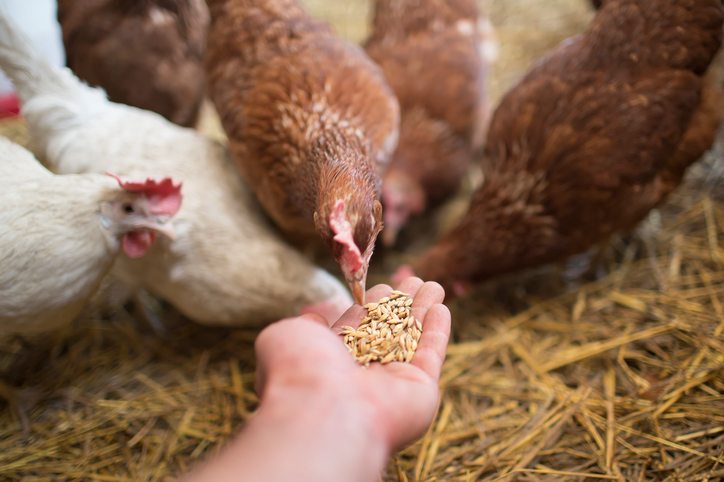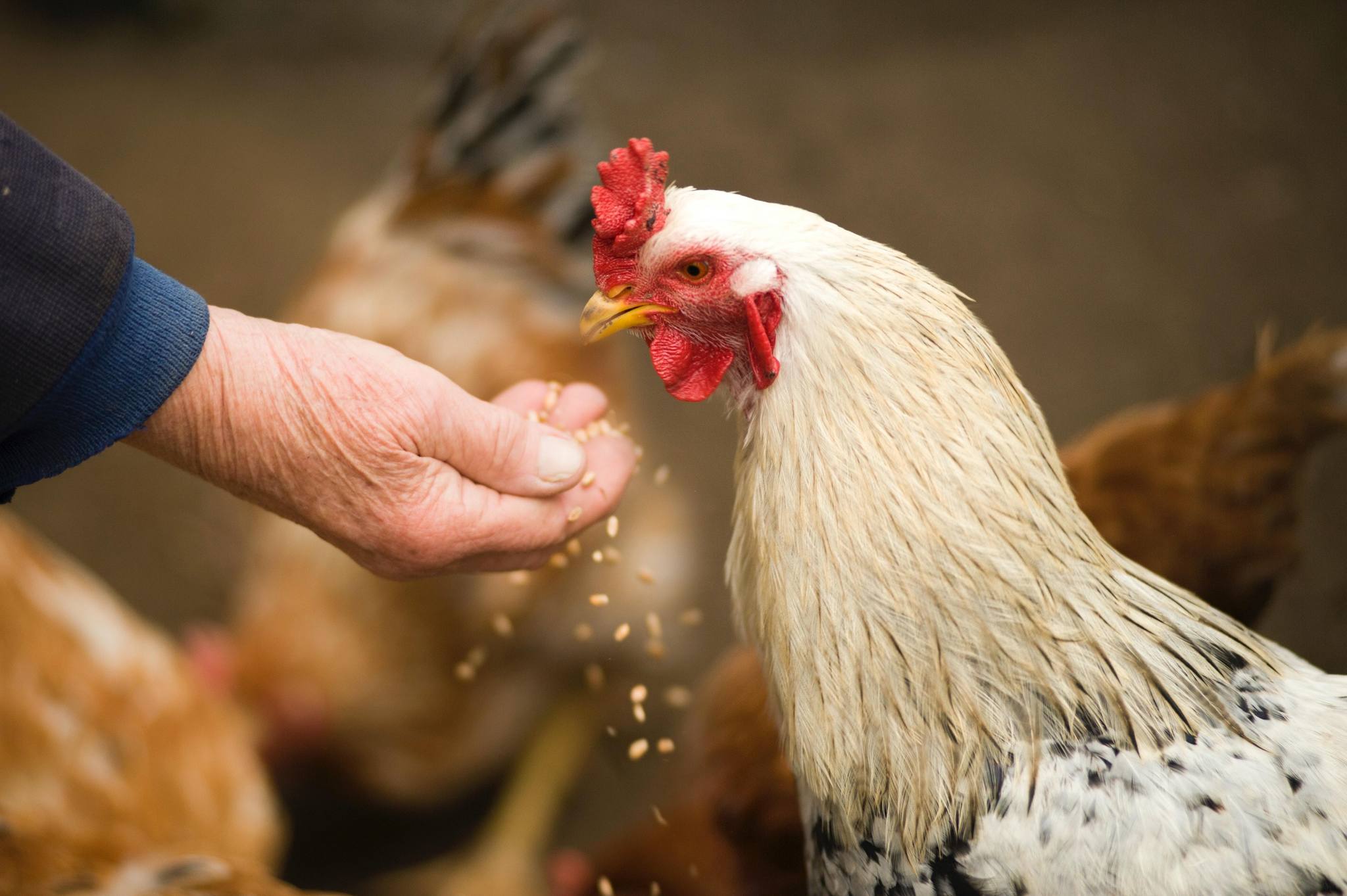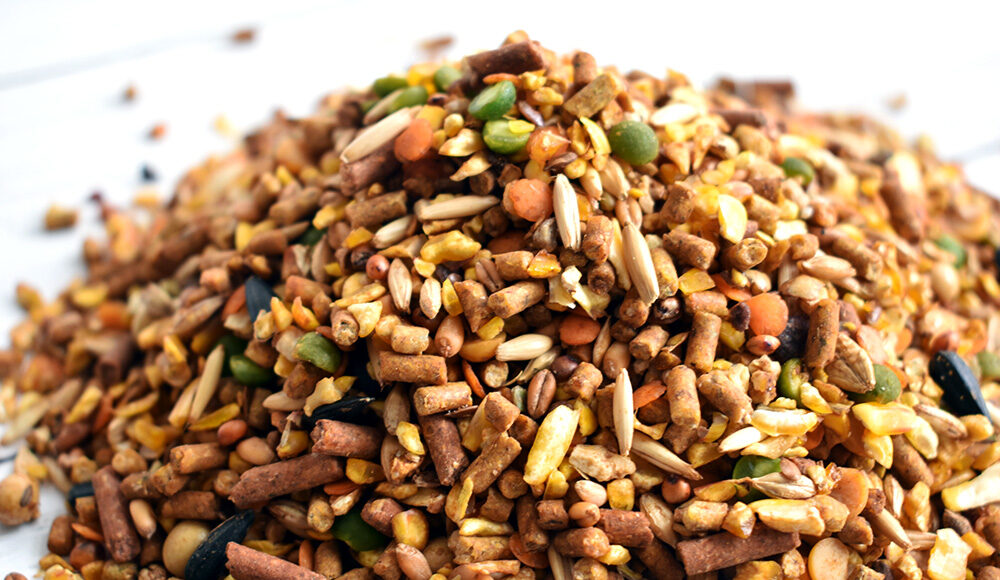Welcome to an elaborate discussion on what is in medicated chicken feed. We’re delighted to present a detailed guide tailored to poultry enthusiasts who are eager to understand this essential component of chicken care. Medicated chicken feed plays a tremendous role in maintaining the health and productivity of your flock. This article unveils the ingredients, benefits, and usage considerations of medicated chicken feed.

What is Medicated Chicken Feed?
Medicated chicken feed is a specially formulated feed that includes specific medications. These medications predominantly help prevent or control diseases, promoting healthier and more productive chickens. The most common medication found in these feeds is Amprolium, which is used to prevent coccidiosis a parasitic disease affecting the gut of poultry.

Components of Medicated Chicken Feed
Main Ingredients
Understanding the primary ingredients is key to grasping what is in medicated chicken feed. Here are the primary components:
- Protein sources: Soybean meal, fish meal, and other protein-rich ingredients are essential for growth and development.
- Grains: Corn, wheat, and barley provide the necessary carbohydrates for energy.
- Vitamins and minerals: Vitamins like A, D, E, and essential minerals ensure overall health and proper functioning.
- Medications: Anticoccidial drugs such as Amprolium.
Optional Additives
Some feeds may also include additional additives like:
- Enzymes to aid in digestion.
- Probiotics to promote gut health.
- Antioxidants to enhance the immune system.

Benefits of Using Medicated Chicken Feed
Medicated chicken feed offers tremendous benefits:
- Prevents diseases: The incorporated medications help prevent diseases such as coccidiosis, ensuring a healthier flock.
- Promotes growth: The balanced nutrition leads to better growth rates and productivity.
- Boosts immune system: Vitamins, minerals, and optional additives can strengthen the immune system.

When to Use Medicated Chicken Feed
Timing is crucial when using medicated chicken feed. Heres a breakdown:
- Chick Development: Use during the first 8 weeks to prevent early infection.
- Seasonal Changes: Use during periods of stress like extreme weather changes.
- High-risk Areas: Use in areas known for high incidences of diseases like coccidiosis.
Potential Drawbacks and Considerations
While beneficial, there are some considerations to keep in mind:
- Overmedication: Overuse can lead to drug resistance.
- Withdrawal Period: Follow the withdrawal period before consuming eggs or meat to avoid residual medication.
- Cost: Medicated feed is often more expensive than non-medicated feed.
Medicated vs. Non-medicated Chicken Feed
Choosing between medicated and non-medicated feed depends on various factors:
- Health Status: Use medicated feed if your flock is prone to disease.
- Environmental Conditions: In disease-prone environments, medicated feed is beneficial.
- Type of Poultry: Certain poultry types may benefit more from medicated feed.
How to Transition Between Feeds
Proper transitioning is essential:
- Gradual Change: Mix old and new feed to make the transition smoother.
- Monitor Flock: Observe for any adverse reactions during the transition.
- Consult a Vet: Always consult a veterinarian when making feed changes.
Homemade vs. Commercial Medicated Feed
Understanding the difference between homemade and commercial feeds can impact your decision:
- Quality Control: Commercial feeds often have better quality control.
- Cost: Homemade feed can be more economical but may lack consistency.
- Customization: Homemade feed allows for greater customization to fit your flocks needs.
Expert Opinions on Medicated Chicken Feed
Experts generally advocate for the strategic use of medicated feed:
- Veterinarian Approval: Always seek veterinarian advice before starting medicated feed.
- Balanced Nutrition: Ensure the feed meets all nutritional requirements.
- Regular Monitoring: Keep track of your flocks health and productivity.
Common Myths About Medicated Chicken Feed
Lets debunk some common myths:
- Myth #1: Medicated feed contains antibiotics. Fact: Most medicated feeds contain coccidiostats, not antibiotics.
- Myth #2: Its harmful to consume eggs from medicated chicks. Fact: Follow the withdrawal period to ensure egg safety.
- Myth #3: Only sick chickens need medicated feed. Fact: Its preventive, not just curative.
How to Store Medicated Chicken Feed
Proper storage ensures the effectiveness of the feed:
- Cool, Dry Place: Store in a cool, dry place to prevent spoilage.
- Sealed Containers: Use sealed containers to keep out pests and contaminants.
- Regular Rotation: Rotate stock to use the oldest feed first.
Frequently Asked Questions (FAQs)
Is medicated chicken feed safe for all poultry?
Most poultry can safely consume medicated feed, but always consult with a veterinarian.
When should I stop using medicated chicken feed?
Generally, after 8 weeks or as advised by a veterinarian.
Can I mix medicated and non-medicated feeds?
Yes, but it’s essential to monitor the health of your flock and consult a vet.
As an Amazon Associate, I earn from qualifying purchases.









